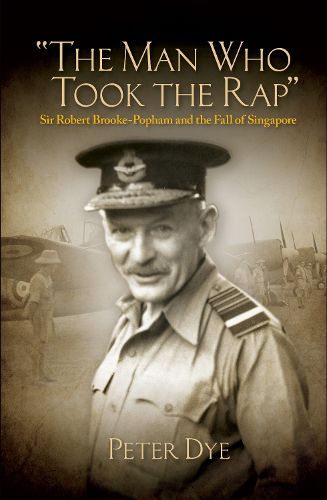Readings Newsletter
Become a Readings Member to make your shopping experience even easier.
Sign in or sign up for free!
You’re not far away from qualifying for FREE standard shipping within Australia
You’ve qualified for FREE standard shipping within Australia
The cart is loading…






This is the first biography of Sir Robert Brooke-Popham, a key figure in the early development of airpower, whose significant and varied achievements have been overlooked because of his subsequent involvement in the fall of Singapore. It highlights Brooke-Popham’s role in developing the first modern military logistic system, the creation of the Royal Air Force Staff College and the organizational arrangements that underpinned Fighter Command’s success in the Battle of Britain. Peter Dye challenges longstanding views about performance as Commander-in-Chief Far East and, based on new evidence, offers a more nuanced narrative that sheds light on British and Allied preparations for the Pacific War, inter-service relations and the reasons for the disastrous loss of air and naval superiority that followed the Japanese attack. The Man Who Took the Rap highlights the misguided attempts at deterrence, in the absence of a coordinated information campaign, and the unprecedented security lapse that betrayed the parlous state of the Allied defenses.
$9.00 standard shipping within Australia
FREE standard shipping within Australia for orders over $100.00
Express & International shipping calculated at checkout
This is the first biography of Sir Robert Brooke-Popham, a key figure in the early development of airpower, whose significant and varied achievements have been overlooked because of his subsequent involvement in the fall of Singapore. It highlights Brooke-Popham’s role in developing the first modern military logistic system, the creation of the Royal Air Force Staff College and the organizational arrangements that underpinned Fighter Command’s success in the Battle of Britain. Peter Dye challenges longstanding views about performance as Commander-in-Chief Far East and, based on new evidence, offers a more nuanced narrative that sheds light on British and Allied preparations for the Pacific War, inter-service relations and the reasons for the disastrous loss of air and naval superiority that followed the Japanese attack. The Man Who Took the Rap highlights the misguided attempts at deterrence, in the absence of a coordinated information campaign, and the unprecedented security lapse that betrayed the parlous state of the Allied defenses.